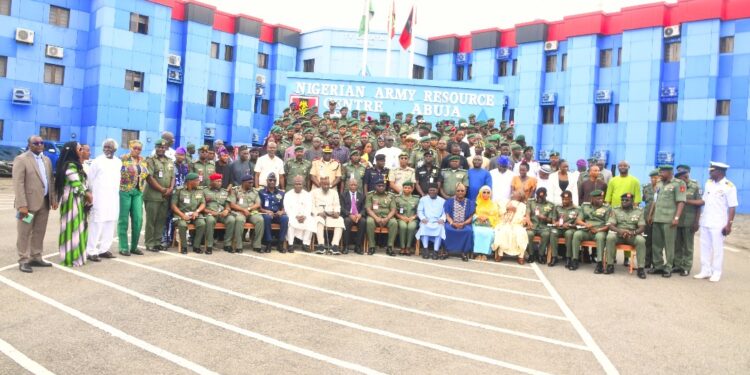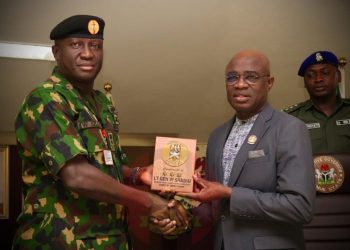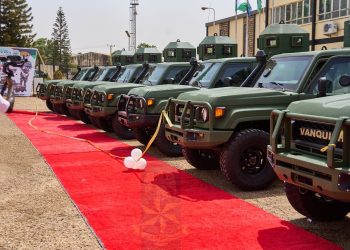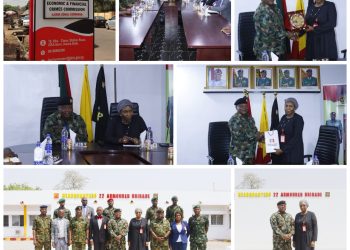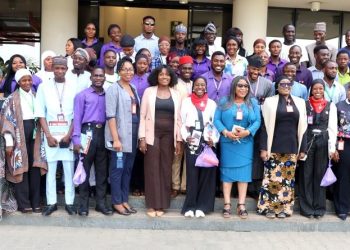By Nkechi Eze
The Nigerian Army has reaffirmed its unwavering commitment to deepening collaboration with the media as a strategic partner in promoting national unity, transparency, and public security consciousness. This was the central message at the end of the 2025 Combined Third and Fourth Quarters Media Training Seminar, held at the Nigerian Army Resource Centre, Abuja, where senior officers, defence correspondents, and communication experts converged to strengthen military-media relations in an evolving information landscape.
In her closing remarks, the Director of Army Public Relations, Lieutenant Colonel Appolonia Anele, described the seminar as a resounding success and a milestone in the ongoing effort to enhance understanding and trust between the Nigerian Army and the media.
“Ladies and gentlemen, it is with profound honour and a deep sense of humility that I stand before you to mark the closing of the Nigerian Army Public Relations Media Training Seminar 2025,” she said. “Over the past days, we have engaged in reverent discussions, inspiring presentations, and stimulating exchanges that sharpened our understanding of the vital interface between the military and the media in safeguarding our nation.”
Lieutenant Colonel Anele noted that contemporary warfare extends far beyond the battlefield, emphasizing that information dominance is now as crucial as tactical strength. She warned that misinformation and propaganda have become potent tools used by enemies of the state to sow division, incite fear, and distort national realities.
“Propaganda, misinformation, and disinformation have become now weapons in the hands of terrorists and economic saboteurs,” she cautioned. “Our collective task is to ensure that these forces do not erode public trust, weaken national morale, or undermine the sacrifices of our troops who daily confront enemies of our state.”
She commended media professionals for their invaluable role in shaping national perception and fostering resilience through responsible and conflict-sensitive journalism, urging them to continue upholding truth and patriotism in their reportage.
“The cooperation of the media is indispensable,” she asserted. “You are not bystanders in this fight, you are strategic partners whose words and reports shape perceptions, build resilience, and strengthen mutual trust.”
Anele further charged participants to apply the knowledge gained from the seminar in their daily professional engagements, whether in the newsroom, on the field, or within the military’s communication framework.
“I urge all participants to translate these lessons into action, whether in the newsroom, on the field, or in our respective departments, so that together, we can deny adversaries the obscenity of propaganda and instead uphold the truth of our collective resolve against criminality,” she stated.
On behalf of the Chief of Army Staff, Lieutenant General Olufemi Oluyede, she expressed gratitude to facilitators, media partners, sister service spokespersons, and all contributors to the seminar’s success.
“Your commitment is a testament to patriotism and assurance that the military-media partnership remains strong and unbreakable,” she said. “As we draw the curtains on this event, I charge you all to remain ambassadors of truth, defenders of professional ethics, and partners in the great task of building a safer, stronger, and more united Nigeria.”
The week-long seminar, organized by the Directorate of Army Public Relations (DAPR), featured four intensive sessions delivered by communication scholars, media executives, and security professionals, each addressing the dynamic relationship between military operations and information management.
The opening lecture, “On Conflict Reporting and National Security: Striking the Balance between Transparency and Responsibility in Media Practice” by Dr. Alli Akeem, highlighted the delicate balance journalists must maintain between truthful reporting and safeguarding operational integrity. He underscored that ethical journalism remains central to preserving national stability in conflict-sensitive environments.
Retired Brigadier General Sani Usman, in his presentation titled “Techniques for crafting press statements for effective communication in an operational environment” introduced the Triple-A Standard; Accuracy, Timeliness, and Alignment with Command Intent, as the new benchmark for military communication and crisis response.
Former Commissioner of Police Emmanuel Ojukwu (Rtd) delivered a thought-provoking lecture on “The Role of the Media in Shaping Perception of Military Operations: Implications for Nigerian Army Operational Successes.” He emphasized that the media’s framing of military activities profoundly shapes public confidence, urging journalists to adopt empathy, accuracy, and balance in reporting.
The final lecture, “Artificial Intelligence in Combating Misinformation in Nigerian Army Storytelling” by Dr. David Ayuba, explored the role of AI-powered technologies in identifying and neutralizing false narratives, demonstrating how digital innovation can enhance the Army’s communication strategy in the age of information warfare.
At the end of the seminar, participants agreed on key takeaways, including the need for proactive communication, professional ethics, digital literacy, and inter-agency collaboration to fortify national information resilience.
The 2025 edition of the Combined Thought and Thought Quarters Media Training Seminar thus concluded on a note of optimism and renewed partnership, reaffirming the Nigerian Army’s commitment to credible communication, transparency, and national unity through continuous engagement with the media.


